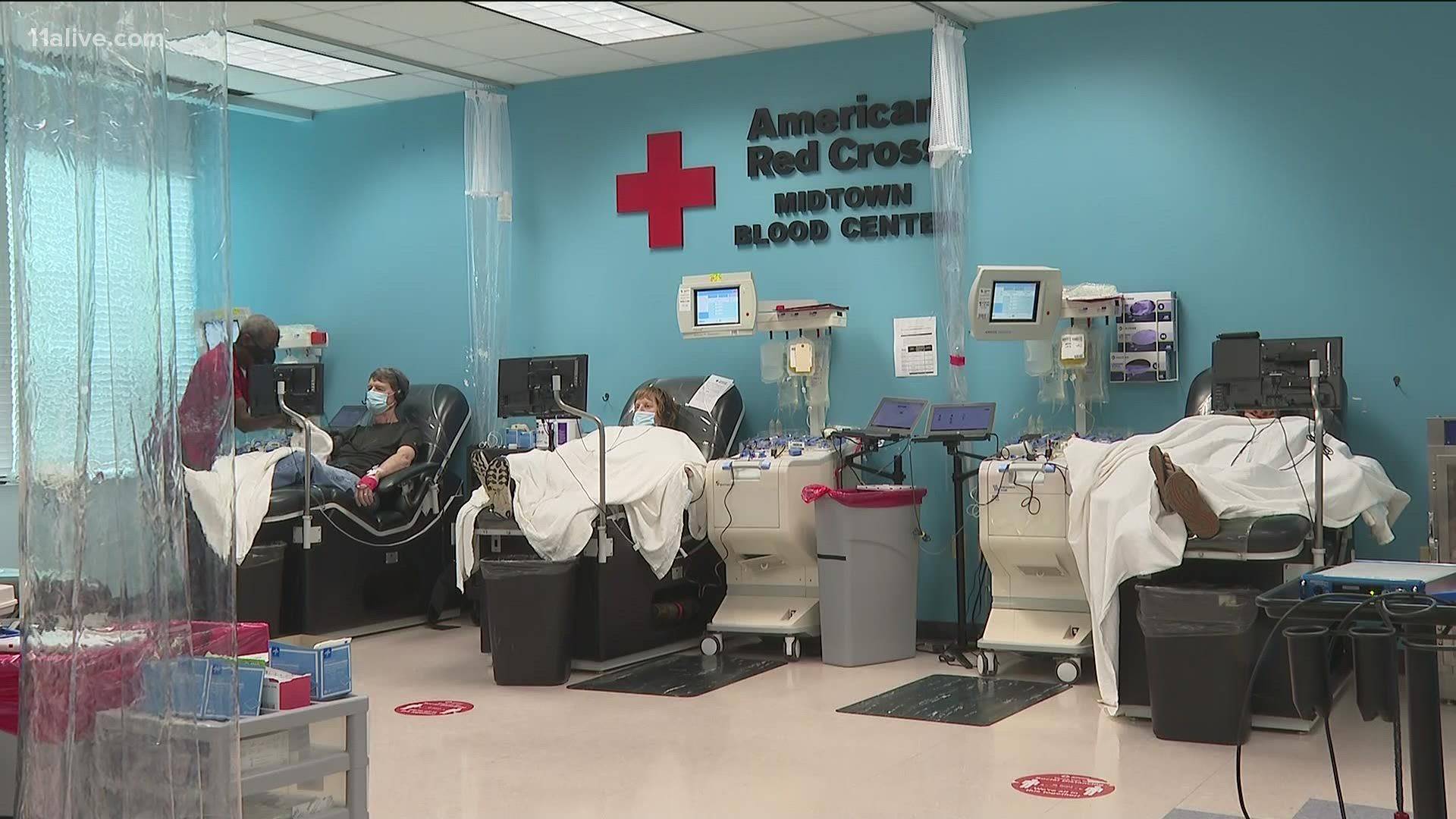ATLANTA — Dwayne Clark sipped from a juice box, relaxing after having just given blood moments before. He comes to the Red Cross's blood donation center every two months to give blood.
"It was smooth, just like silk," Clark said. "It’s easy-going. It’s just something to do for other people."
Blood donations are in short supply, according to the Red Cross of Georgia. The organization said it has not seen levels this low since 2015. Medical director Dr. Baia Lasky blamed the pandemic, saying COVID-19 slowed down the ability to host drives at popular places like businesses, schools and sporting events.
A recent surge in cases and hospitalizations tied to the delta variant has kept many donors at home despite a climbing need for blood. Accidents, trauma patients, cancer patients and others constantly need a supply of blood on hand, along with new COVID patients.
"While we've had barriers to collecting, the demand has stayed strong," Lasky said. "That's left us with, at times, less than a half day's supply of certain blood types. The challenge has been continuing to collect in the landscape of a demand that has not changed."
Lasky said the organization was short about 10,000 units of blood. For context, one person can donate up to three units of blood at a time. It's recommended to give blood once every 56 days. Lasky said the Red Cross dealt with a 10-percent drop in donor turnout in August, likely due to the delta variant.
The Red Cross also depends on its national inventory center when natural disasters strike. The shelf-life for red blood cells is about six weeks, Lasky said. The shelf-life for platelets is about five days, so stockpiling supply can be difficult.
“We can’t manufacture blood. We depend on the generous donations from donors," Lasky said. “Our biggest concern is that hospitals and physicians will not have the blood when they need it.”
People living with Sickle Cell disease are in particular need for blood, since they often need regularly scheduled blood transfusions. Dr. Milford Green at the Sickle Cell Foundation of Georgia said the state had about 13,000 people who lived with the disease, which deforms red blood cells and bocks healthy blood flow.
“It’s a very intensely painful episode as if everything in a person’s body is aching," Green said. “Liken it to putting your body on Spaghetti Junction and having all of the traffic there just roll over you.”
Green said some Sickle Cell patients have had to wait up to four days to get a blood transfusion because of the short blood supply on hand. He put out a call to action for more people of color to donate blood to combat the threat of Sickle Cell.
Clark said he was able to specifically donate to Sickle Cell patients. He said he would keep up his routine visits to the blood donation center, because his life may one day be on the line.
“I do have a couple of friends who have passed away from Sickle Cell," Clark said. "I wish I could have given then. That’s when I was very young. It would be good to help them, keep helping them. It could be my life one day. I might have an accident and need blood."
To learn more about how to donate, click here.

